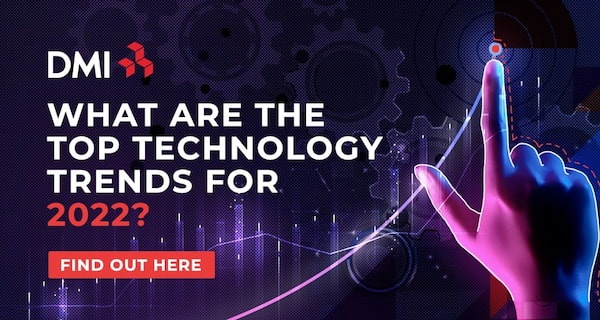
Healthcare Innovation: How to Keep Your Technology on Par With Science
Provider organizations, payer organizations, and healthcare companies typically use legacy IT business models. While these systems are traditionally reliable, they're notoriously difficult to upgrade and connect to other systems. They can also inhibit collaboration between vendors and partners.
The good news is, evolving hybrid solutions can simplify the overall IT footprint and reduce unnecessary complexity. Digital transformation offers innovation that can keep technology on par with science. What's more, new technologies should enable FAIR data and processes — better findability, accessibility, interoperability, and reuse of digital assets.
What is Digital Transformation?
Digital transformation is a process. It involves adoptive and adaptive innovation in which organizations find and incorporate technology products. The idea is to replace outdated or manual processes and technologies with new digital technologies.
New technologies can help develop new revenue streams, investment strategies, and payment options. Digital transformation can also mean new self-serve purchasing options, digital products, content streaming, AI-enabled CRM systems, and product personalization. In terms of innovation in healthcare, pharma, and other life sciences, digital transformation must also keep technology on par with science.
Digital Transformation in Healthcare
The goals for digital transformation in healthcare are flexible, scalable, efficient, and streamlined scientific business processes. Healthcare, pharma, and other life sciences organizations can reach these goals. However, according to Endpoints News, only a few scientific IT platforms can span discovery through product production.
Ultimately, reproducibility in science, model-quality data, knowledge bases, and tech transfer should work together. The quality data model (QDM) is a standardized format that measures electronic quality performance. Electronic Health Record systems can utilize QDM to ensure broad stakeholder collaboration in development.
Additionally, a QDM can maintain consistency in requests and storage and efficiently convey clinical information. Today, the goal is to make entire organizations more adaptable through technology and collaboration. And, adaptability is more important than ever in life sciences, pharma, and healthcare.
Digital transformation disrupts these industries and provides opportunities to build composable healthcare organizations with flexible infrastructures. Ultimately, a unified platform acts as an ecosystem that continually adds new business applications, scientific content, and other capabilities.
Create a Composable Healthcare Organization
Cloud platforms can replace antiquated tools and legacy systems with composable architecture that offers flexibility and preparedness. The unified platform effectively acts as a blueprint. Additionally, these new technologies provide healthcare organizations with an opportunity to reduce their IT footprint.
A QDM provides language-defining criteria for clinical quality measurement. The electronic definition of a clinical concept using data elements provides the vocabulary relating aspects to one another by connecting data attributes to clinical factors and using filtering functions. The QDM can construct complex clinical representations.
These composable systems can drive efficiency and reduce costs associated with disconnected legacy IT. For example, L7|ESP is a QDM that stands out as a Next-Generation platform. It provides reusable, FAIR-compliant building blocks with well-defined scientific business processes. It also allows organizations to combine processes with data models.
Implementing the platform depends on the current and type of complexity of a unique IT environment and L7| ESP's role. However, the system can generally be operational in weeks, providing opportunities for pharma and healthcare products to get to market faster.
Collaborate With IT Professionals
It can be challenging to transform an outdated legacy system, but data transformation happens in steps. Organizations can guarantee success by partnering with reliable IT professionals. At DMI, our experts offer a detailed review of organizational data management.
We evaluate historical data health, including:
- Data infrastructure
- Architecture
- Data use
- Data science
We also consult on data culture, including team skills and resources. Then, we supply a personalization scorecard to assess and capture organizational readiness.
Machine learning and AI can benefit pharma, life sciences, and healthcare organizations. However, how innovation can help a business isn't always as straightforward without an evaluation. At DMI, we understand the process of digital transformation and how to use AI to assist human decision-makers.
DMI uses innovation to help healthcare organizations keep their technology on par with science. Connect with us online to discover how we can help with your organization's digital transformation.
